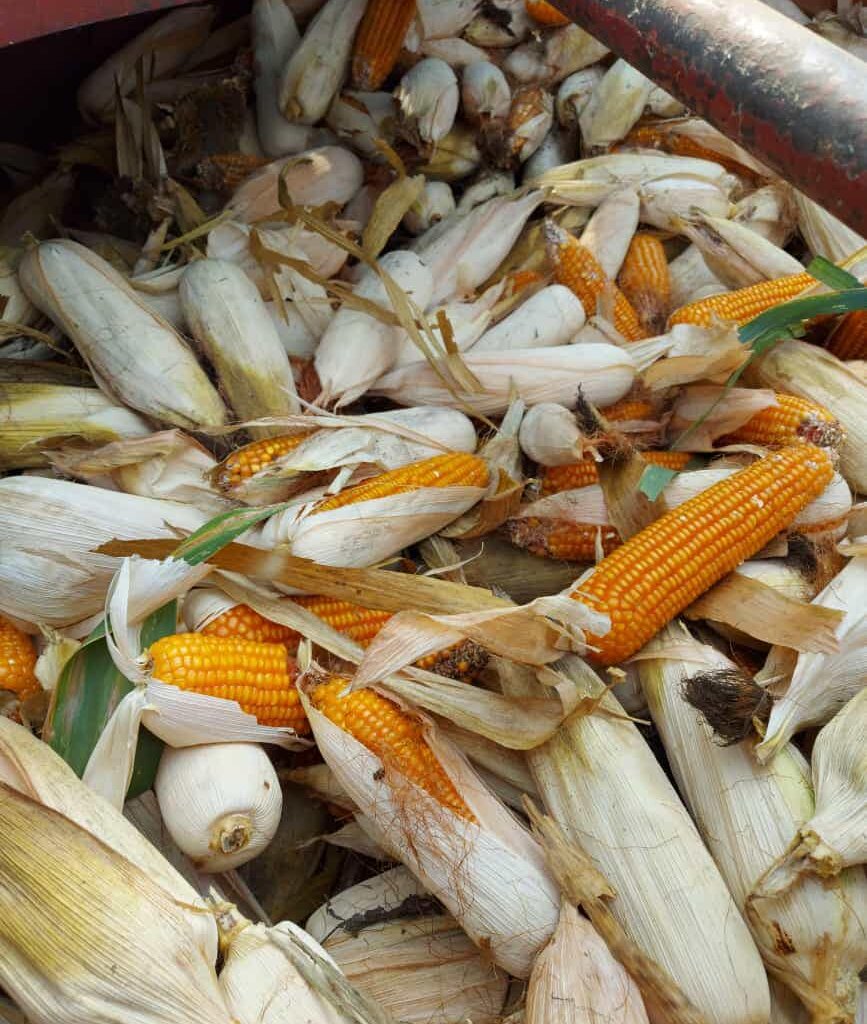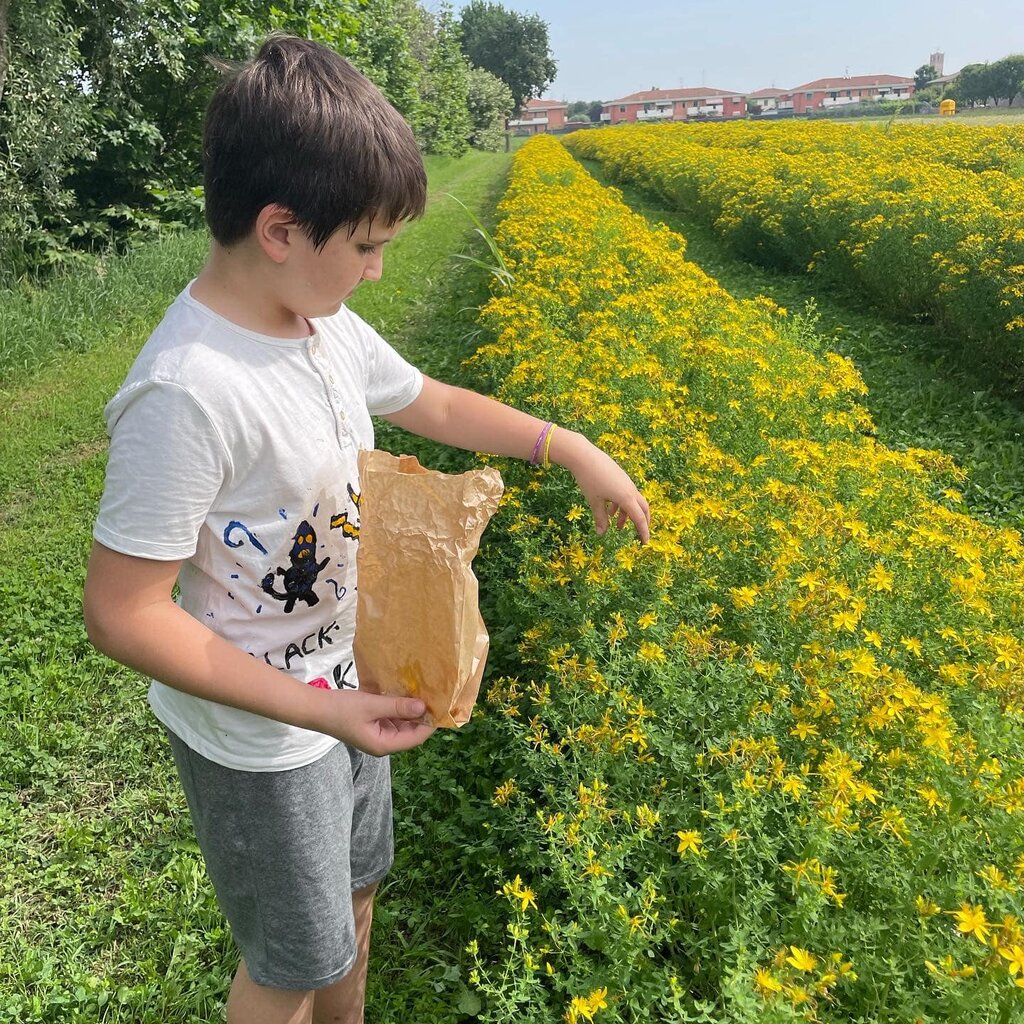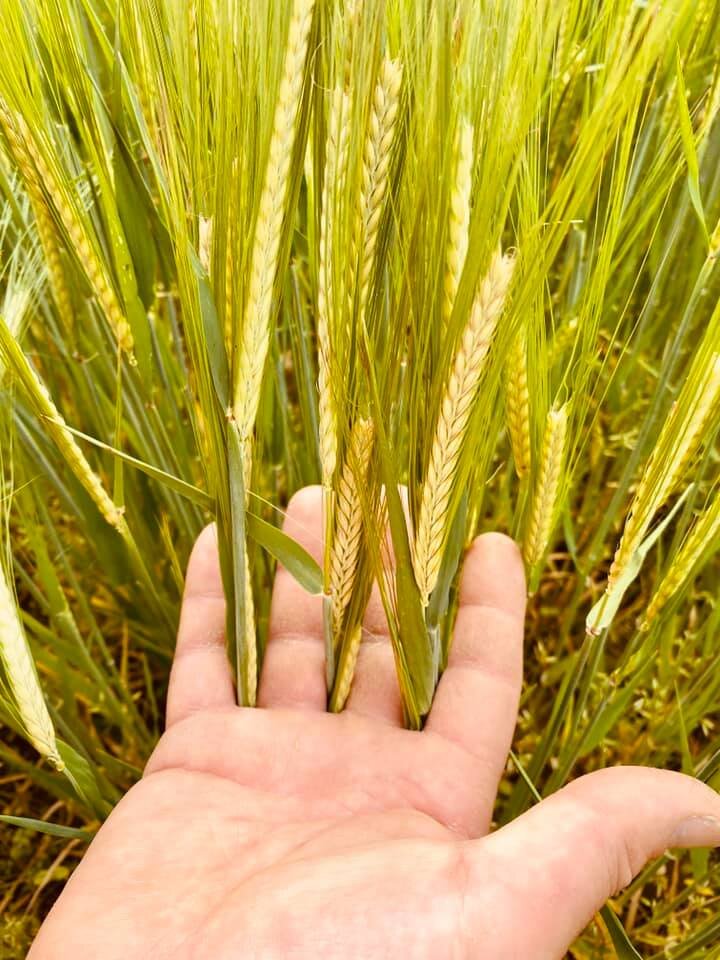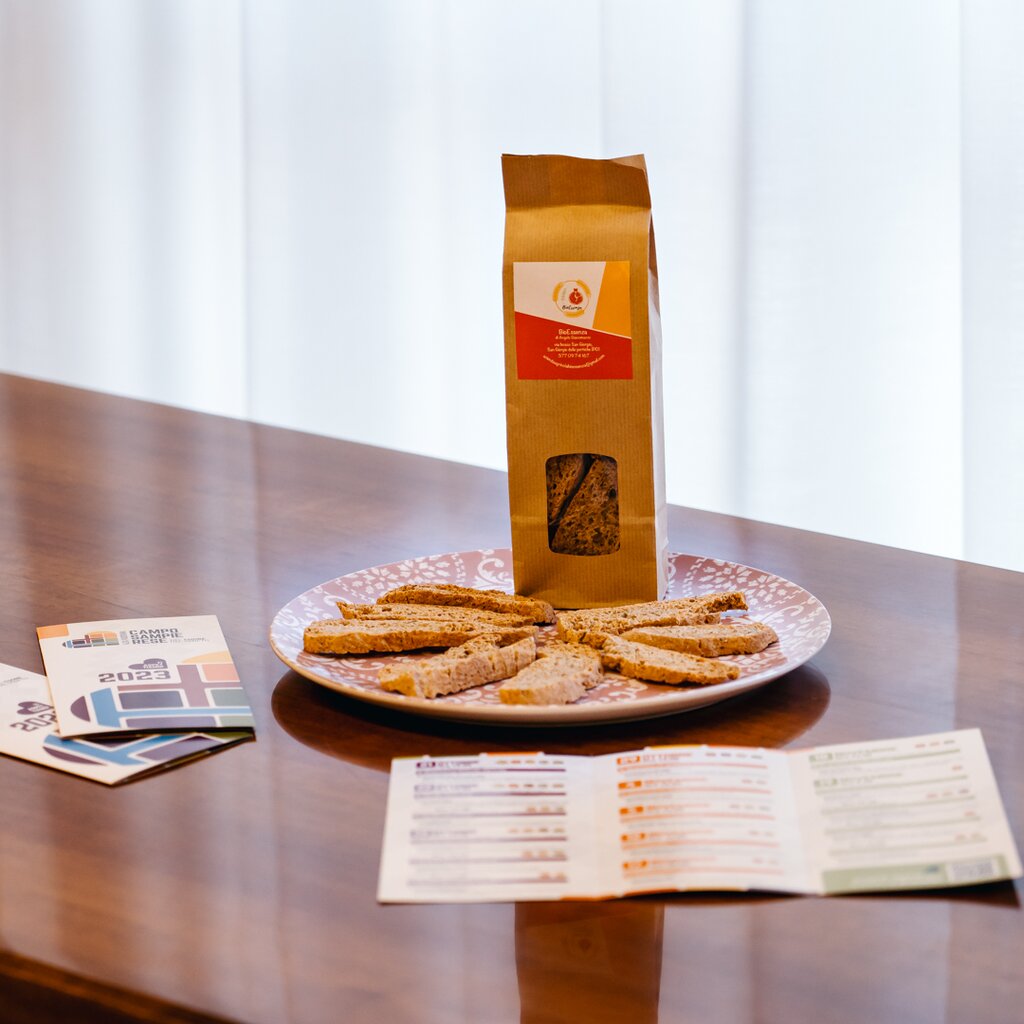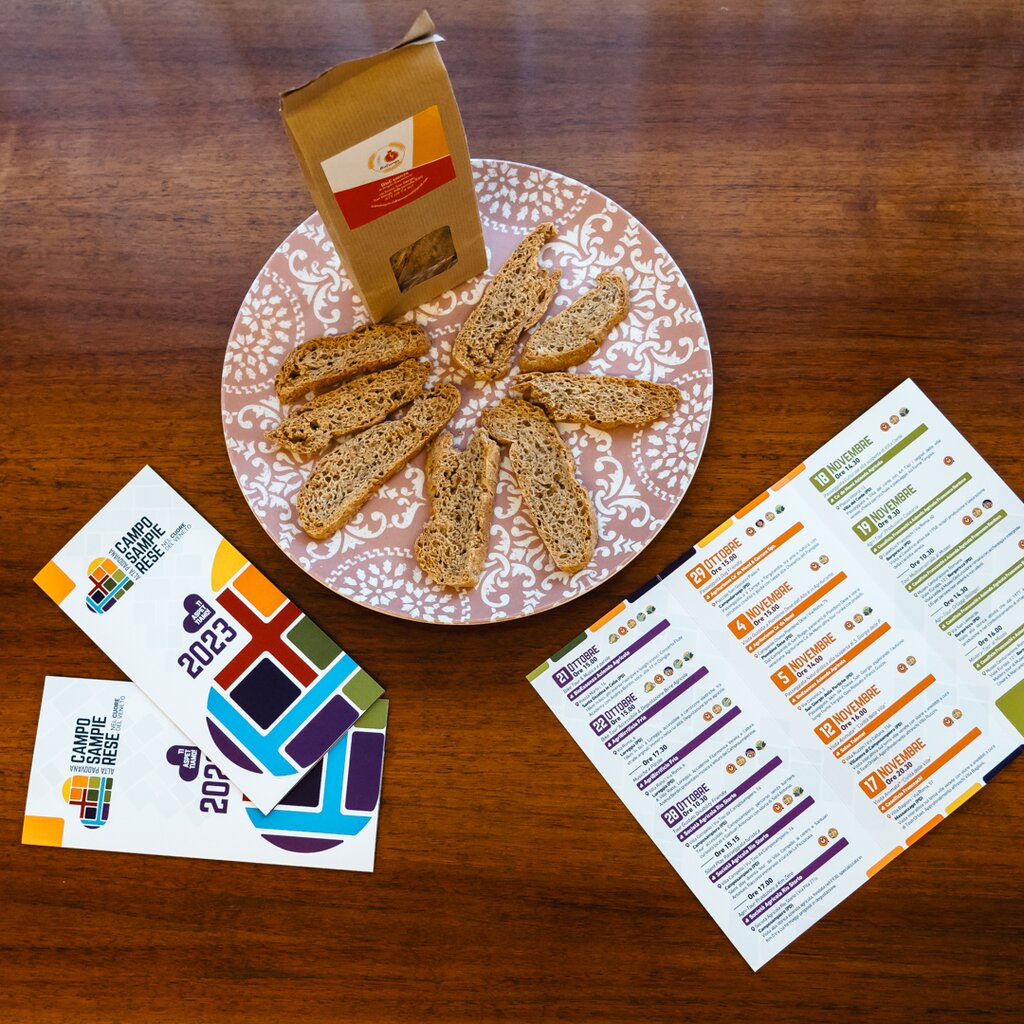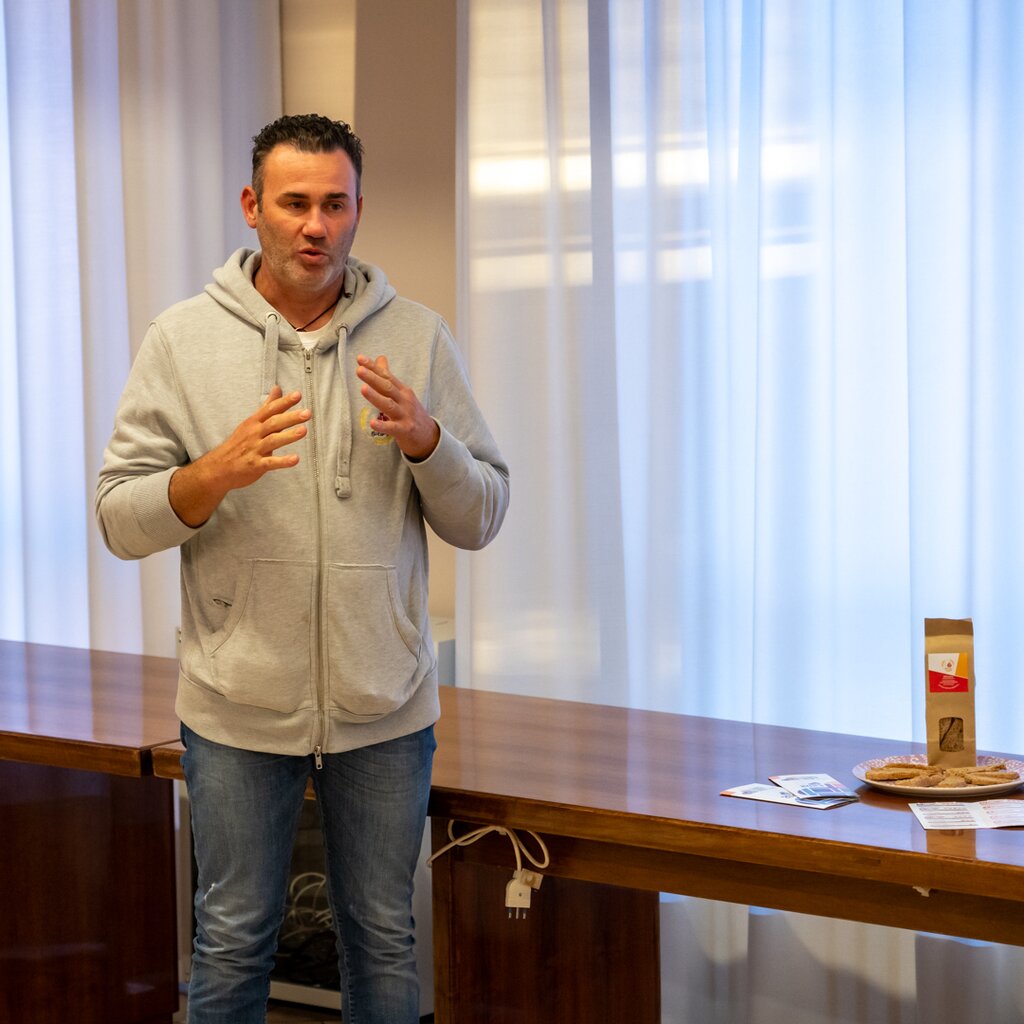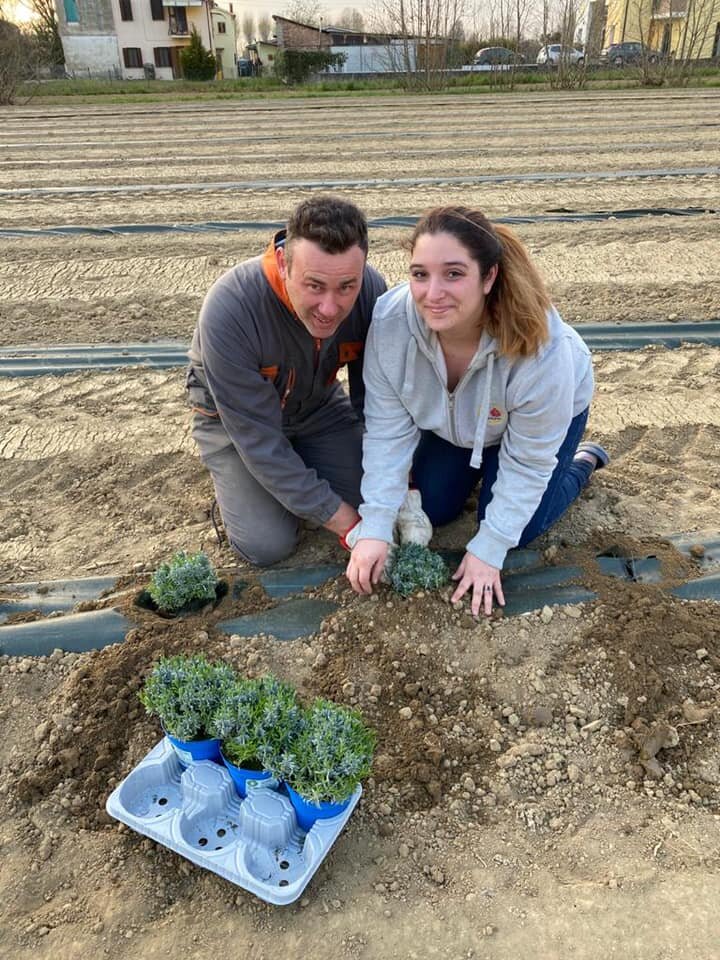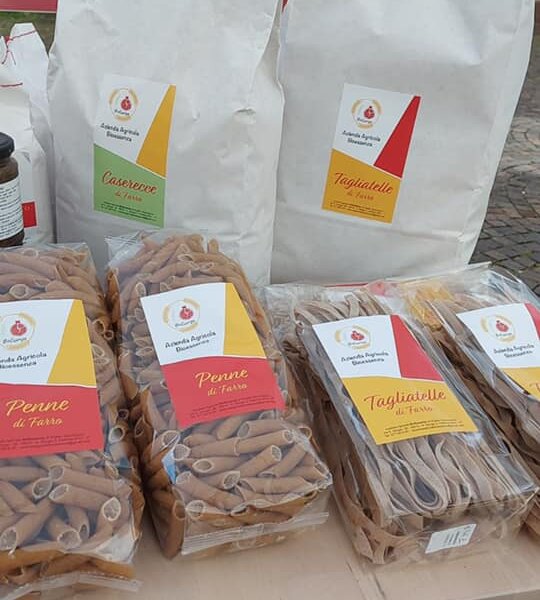Bioessenza Azienda Agricola
BioEssenza Azienda Agricola is a certified organic family-run farm set up in 2016 due to a passion for herbs. In 2018, the farm introduced new projects that included the cultivation of pomegranates and direct sales of its processed food and cosmetic products. 2020 was a year of learning all about beekeeping, with 2 nucleus colonies of bees adopted for the production of bee-related products. The company’s products include: Spelt pasta, type-1 and -2 flour, stoneground Bologna wholemeal flour and soft-wheat wholemeal flour, honey, wholemeal biscuits with lemon balm and type-2 flour biscuits with lavender, biscuits with helychrysum, and various spelt and soft-wheat crostini. All BioEssenza products are processed in local companies: all the ingredients/officinal raw materials are worked individually to guarantee their exclusive quality. In 2021, BioEssenza expanded its officinal herbs project, planting out an entire park with over 7,000 aromatic herbs to offer a biodiversity itinerary that enables exploration of the olfactory notes and many uses of aromatic herbs. The visit covers almost 2 km of trail laid out to enable discovery of the different plants grown in the park and easy accessibility to the pedestrian and cycle paths throughout the area (Ostiglia-Treviso route, Sant’Antonio nel Muson route and the Tergola route). 2022 saw the first harvest of Gentil Rosso, an ancient variety of wheat, and Maranello yellow corn flour for polenta. The estate also has an area set aside for courtyard animals. BioEssenza can also be contacted for the organisation of events, games and sports in the open air, plus courses on officinal herbs and the world of organic produce.
The Azienda Agricola BioEssenza has made a very definite choice in line with its own philosophy: recuperating ancient cereals through short supply chains and the cultivation of aromatic and officinal herbs. The main crop in the fields is monococcum spelt, a variety of cereal with a long history, commonly known as Little Spelt. It is considered to be one of the oldest cereals in the ancestral grain line, often called the father of all wheats. The company practices organic farming, avoiding the use even of natural-origin fertiliser. It also rotates its crops and uses green manure to preserve the soil’s fertility. Monococcum spelt is grown in a way that could be described as rustic, as it requires no pesticides and only natural products when necessary. Monococcum spelt has similar culinary properties to modern grain, but it is considerably easier to digest and suitable for those sensitive to gluten. It in fact has a low gluten content and low tenacity, factors that make it easier to digest than other cereals. From a nutritional point of view, monococcum spelt is particularly rich in biologically active anti-oxidants. From field to table – a very short trip.
